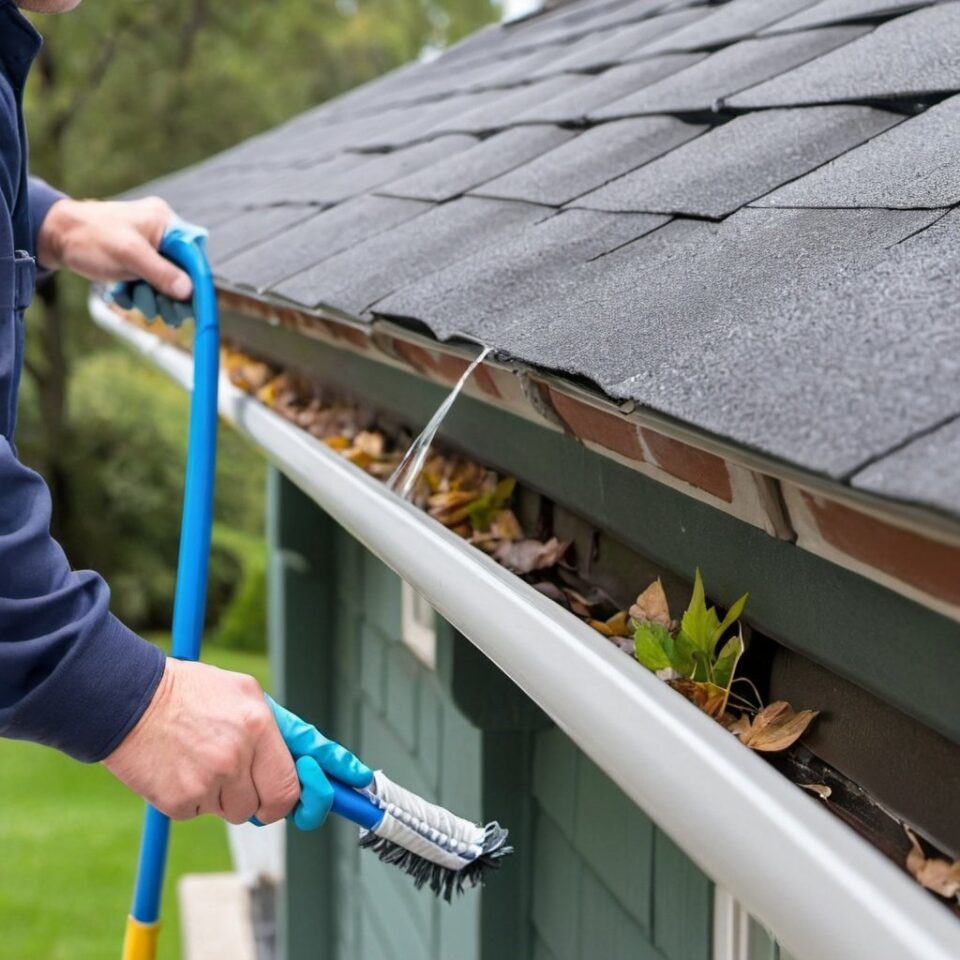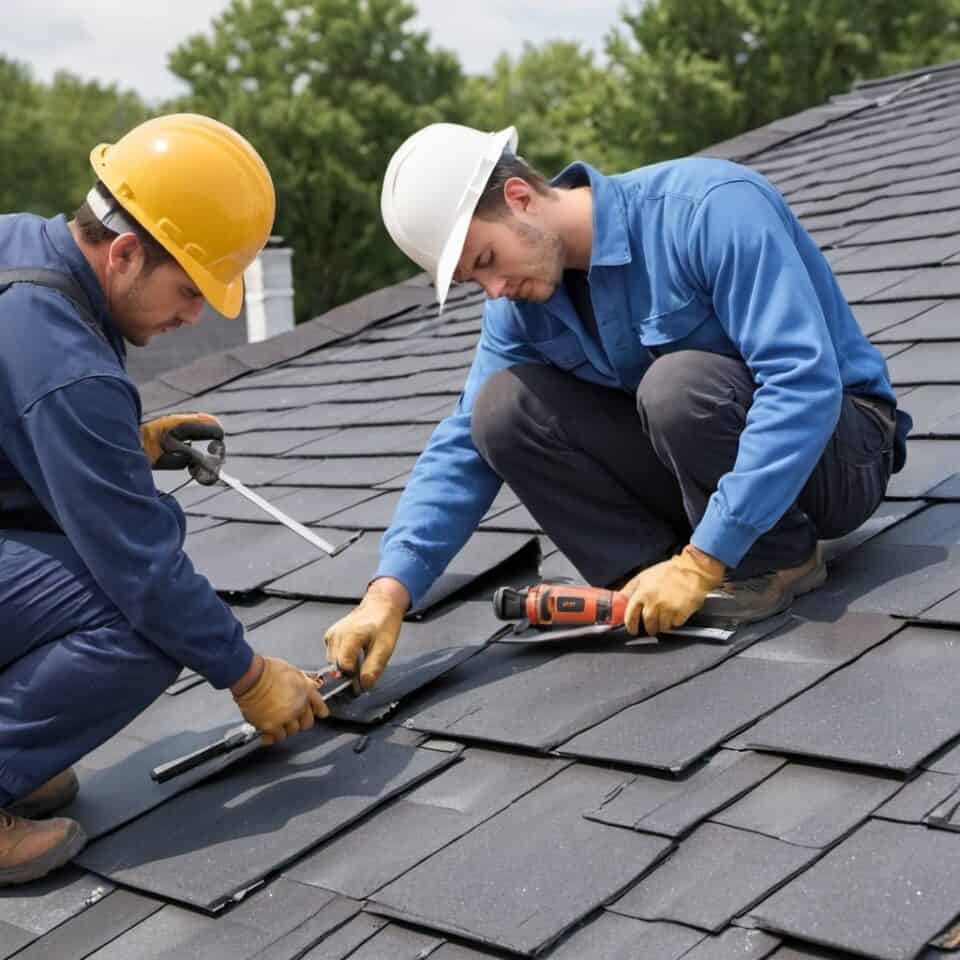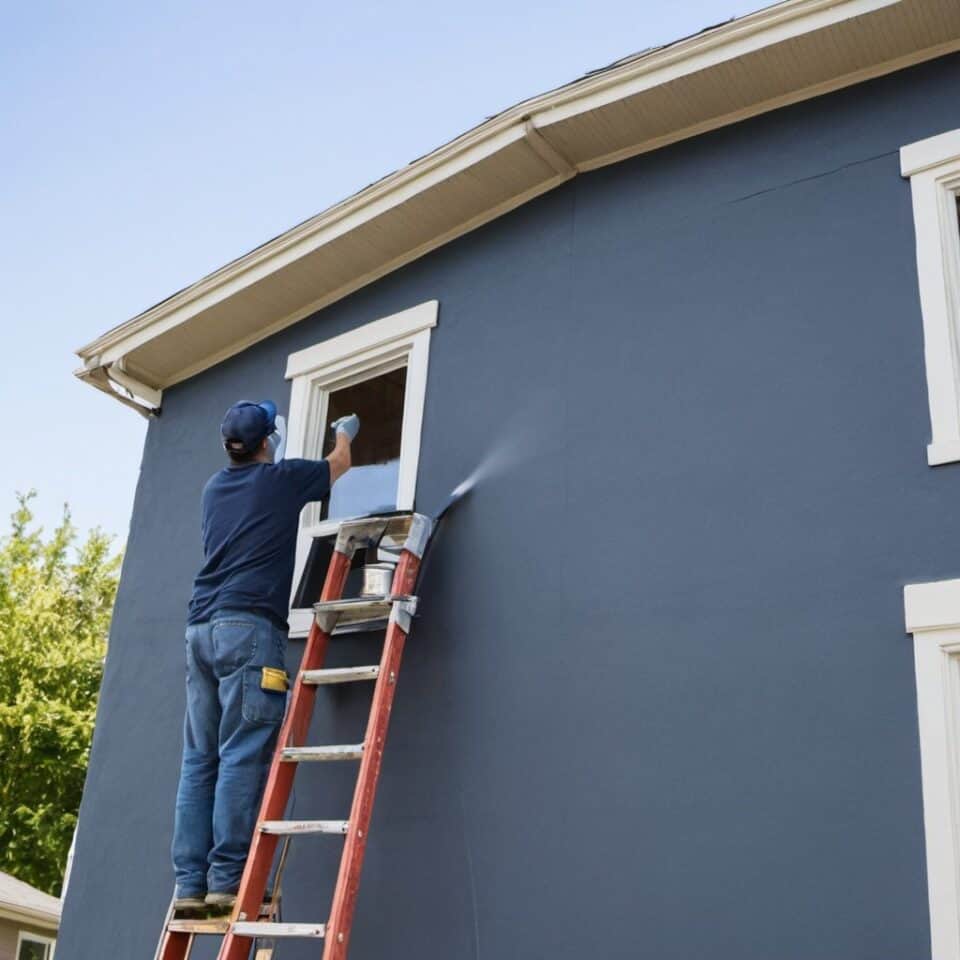Are you planning to add a roof to your deck? Choosing the right roof for your deck is crucial for the overall aesthetics, functionality, and durability of your outdoor space. With numerous deck roofing options available, it’s essential to consider factors such as cost, durability, and style to find the perfect fit for your deck. In this ultimate guide, we will explore different deck roof ideas and help you make an informed decision for your deck roofing project.
Key Takeaways:
- Roof decking acts as a foundation for your deck and is essential for maintaining structural integrity.
- Oriented Strand Board (OSB) and plywood are common materials used for roof decks.
- Regular maintenance and inspection of your roof deck are crucial to identify signs of damage.
- Roof decks can sustain damage from various factors such as broken shingles and excess humidity.
- Signs that indicate the need for roof deck replacement include water leaks and visible damage.
Common Causes of Roof Deck Damage
When it comes to your deck roof, there are several common causes of damage that you should be aware of. By understanding these factors, you can take the necessary steps to prevent or address any issues that may arise. Here are some of the most common causes of roof deck damage:
Broken or Damaged Asphalt Shingles
One of the primary causes of roof deck damage is broken or damaged asphalt shingles. Over time, shingles can deteriorate due to weather exposure or other factors, leading to leaks and potential structural issues. Regular inspections and maintenance can help identify and replace any damaged shingles before they cause further damage to your roof deck.
Torn Flashings
Flashings are metal pieces installed in the areas where the roof and other surfaces meet, such as chimneys or skylights. When flashings become torn or damaged, they can allow water to seep into the roof deck, leading to rotting and structural damage. Inspecting and repairing damaged flashings can help maintain the integrity of your roof deck.
Accumulation of Snow
In areas with cold climates, the accumulation of snow on your deck roof can pose a threat to its structure. The weight of the snow can put excessive stress on the roof deck, potentially causing it to collapse. Regularly clearing snow from your roof can help prevent this issue and ensure the safety of your deck.
Excess Humidity in the Attic
Excessive humidity in the attic can lead to moisture buildup in the roof deck, resulting in rotting and weakening of the structure. Proper ventilation and insulation in the attic can help regulate humidity levels and prevent damage to your deck roof. Regular monitoring of humidity levels and addressing any issues promptly is crucial in maintaining the health of your roof deck.
By understanding the common causes of roof deck damage, you can take proactive measures to prevent issues and ensure the longevity of your deck roof. Regular inspections, maintenance, and timely repairs are key to protecting your investment and enjoying a durable and functional outdoor space.
Signs It’s Time to Replace Your Roof Deck
Over time, your roof deck can sustain damage from various factors, leading to structural issues and expensive repairs. It’s important to be aware of the signs that indicate it’s time for a roof deck replacement. By addressing these signs promptly, you can ensure the longevity and integrity of your deck roof.
Continuous Water Leaks and Visible Water Damage
If you notice continuous water leaks from your deck roof, it’s a clear indication that your roof deck is compromised. Additionally, visible water damage on the ceiling, such as stains and discoloration, is a sign that water is penetrating the roof deck and causing damage. These issues can worsen over time, leading to more significant problems if left unaddressed.
Sagging Ceilings and Peeling Wallpaper
Sagging ceilings can be a result of water damage to the roof deck, causing it to weaken and lose its structural integrity. If you notice any sagging, it’s important to have your roof deck inspected as soon as possible. Peeling wallpaper can also indicate moisture intrusion, which can lead to rotting and further damage to your deck roof.
Presence of Mold in the Attic
The presence of mold in the attic is a clear indication of excessive moisture buildup, which can be a result of a damaged or rotting roof deck. Mold not only compromises the structural integrity of your deck roof but also poses health risks to you and your family. If you notice any signs of mold in your attic, it’s crucial to have your roof deck inspected and replaced if necessary.
Deck roof replacement should be done by a professional roofing contractor to ensure proper installation and maximum protection for your deck. By recognizing the signs of a deteriorating roof deck and taking appropriate action, you can maintain the safety, functionality, and aesthetic appeal of your deck for years to come.
Table: Signs It’s Time to Replace Your Roof Deck
| Signs | Indications |
|---|---|
| Continuous water leaks | Water consistently seeping through the deck roof |
| Visible water damage | Stains, discoloration, or warping on the ceiling |
| Sagging ceilings | Loss of structural integrity, leading to a drooping ceiling |
| Peeling wallpaper | Moisture intrusion causing the wallpaper to peel |
| Presence of mold in the attic | Excessive moisture leading to mold growth |
Different Roofing Material Options for Deck Roofs
When it comes to choosing the right roofing material for your deck roof, there are several options to consider. Each material has its own unique characteristics, offering different levels of durability, cost, and aesthetics. Here are some popular roofing material options for deck roofs:
1. Asphalt Shingles
Asphalt shingles are the most common and cost-effective option for deck roofs. They come in a wide range of colors and styles, allowing you to easily match the look of your deck to your home’s exterior. Asphalt shingles are durable and can withstand various weather conditions. They are also relatively easy to install and maintain.
2. Slate
If you’re looking for a luxurious and long-lasting option, slate roofs are a great choice. Slate is a natural stone that offers excellent durability and a distinctive appearance. Although slate roofs are more expensive than asphalt shingles, they can last for several decades with proper maintenance.
3. Metal
Metal roofs are becoming increasingly popular for deck roofs due to their strength, lightweight nature, and resistance to rot. They are available in various styles and finishes, allowing you to customize the look of your deck. Metal roofs are also energy-efficient, reflecting heat and reducing cooling costs in warmer climates.
4. Wood Shingles or Shakes
If you prefer a natural and traditional look for your deck roof, wood shingles or shakes are an option to consider. They offer a rustic aesthetic and can be stained or painted to match your deck’s design. However, wood shingles require specialized installation and regular maintenance to prevent rot and decay.
5. Rubber Composite Shingles
For those looking for an environmentally-friendly option, rubber composite shingles are worth considering. Made from recycled materials, these shingles provide the appearance of traditional asphalt shingles while offering enhanced durability and resistance to weather elements.
When selecting a roofing material for your deck roof, it’s essential to consider factors such as durability, cost, and aesthetics. Consult with a professional roofer to determine the best roof option for your specific needs and enjoy a beautiful and functional deck roof for years to come.
Popular Roof Styles for Deck Roofs
When it comes to designing a roof for your deck, you have a variety of styles to choose from. Each style offers its own unique features, aesthetic appeal, and suitability for different climates. Here are some popular roof styles that you can consider for your deck:
Asphalt Shingles
Asphalt shingles are the most commonly used roofing material for deck roofs. They are affordable, easy to install, and come in a wide range of colors and styles. Whether you want a traditional or modern look, asphalt shingles can be a versatile choice.
Architectural Shingles
If you want to add depth and texture to your deck roof, architectural shingles are an excellent option. These shingles are thicker and offer a more custom-made look, enhancing the overall aesthetics of your outdoor space.
Slate Roofs
Slate roofs are known for their durability and luxurious appearance. If you’re looking to create a high-end deck with a long lifespan, slate roofs can provide a sophisticated and elegant option, especially in Northeastern regions.
Tile Roofs
Tile roofs, such as clay or concrete tiles, are popular in warmer climates. They provide durability and can resemble Mediterranean or Spanish-style architecture, adding a touch of uniqueness and charm to your deck.
Metal Roofs
Metal roofs are gaining popularity for deck roofs due to their strength, lightweight nature, and resistance to rot. They offer a variety of styles and finishes, making them suitable for different architectural styles and reflecting heat in warm climates.
Wood Shingles or Shakes
For a traditional and rustic look, consider using wood shingles or shakes for your deck roof. These materials offer a natural and timeless aesthetic that can complement various deck designs and create a cozy outdoor ambiance.
When selecting a roof style for your deck, consider the overall design of your deck and the architectural style of your home. Consult with a professional roofer to determine the best roof style that suits your needs and preferences.
| Roof Style | Key Features | Climate Suitability |
|---|---|---|
| Asphalt Shingles | Affordable, easy to install, versatile | Wide range of climates |
| Architectural Shingles | Textured, custom-made look | Wide range of climates |
| Slate Roofs | Durable, luxurious appearance | Northeastern regions |
| Tile Roofs | Durable, Mediterranean or Spanish-style | Warmer climates |
| Metal Roofs | Strong, lightweight, heat-reflective | Wide range of climates |
| Wood Shingles or Shakes | Traditional, rustic look | Wide range of climates |
Tips for Shopping and Estimating Roofing Costs
When it comes to shopping for roofing materials for your deck roof, there are a few key considerations to keep in mind. First, make sure to compare different manufacturers to find the best product that suits your specific needs. This will help you determine the right balance between cost and quality.
One important factor to consider is the cost per square. This is the standard measurement for roofing materials, and it’s essential to know how much you’ll be paying per square of material. Keep in mind that different materials will have varying costs, with asphalt shingles typically being the most budget-friendly option.
| Roofing Material | Cost per Square |
|---|---|
| Asphalt Shingles | $ |
| Slate | $ |
| Metal | $ |
To estimate the total cost of your deck roof, you’ll need to determine the total area in squares. Knowing this will help you calculate the number of material squares needed for your project. It’s recommended to consult with a professional roofer to get accurate measurements and ensure you’re purchasing the correct quantity of materials.
Don’t forget to factor in labor costs when budgeting for your deck roof project. Hiring a professional roofer for installation is essential to ensure proper installation and avoid future issues. Obtain multiple quotes from reputable contractors to compare prices and ensure a fair estimate for your deck roof project.
Conclusion
Choosing the right roof for your deck is crucial for the overall aesthetics, functionality, and durability of your outdoor space. Regular maintenance and inspection of your roof deck are essential to identify any signs of damage and prevent further issues.
Consider factors such as cost, durability, and style when selecting a roofing material. Whether you opt for cost-effective asphalt shingles, luxurious slate, or durable metal roofs, make sure to work with a professional roofer for proper installation. Their expertise can ensure that your deck roof is installed correctly and provides maximum protection.
By making informed decisions and investing in a quality roof for your deck, you can enhance your outdoor living experience and protect your investment for years to come. Take the time to research and compare different roofing materials and styles to find the perfect fit for your deck. Remember, a well-maintained and aesthetically pleasing deck roof will not only improve the value of your home but also provide a cozy and inviting space for you and your loved ones to enjoy.
FAQ
What is roof decking?
Roof decking, also known as sheathing, is the foundation for your roof and acts as a link between your house and the roof.
Why is a strong and durable roof deck important?
A strong and durable roof deck is crucial to maintaining the structural integrity of your deck and preventing issues in the future.
What materials are commonly used for roof decks?
Oriented Strand Board (OSB) is a common material for roof decks, while plywood offers better moisture protection but at a higher cost.
How can I identify signs of damage to my roof deck?
Regular maintenance and inspection are essential to identify signs of damage such as leaks, rotting, or moisture buildup.
What factors can damage a roof deck?
Factors such as broken shingles, torn flashings, snow accumulation, and excess humidity in the attic can cause damage to a roof deck.
When should I consider replacing my roof deck?
Continuous water leaks, visible water damage on the ceiling, sagging ceilings, and the presence of mold in the attic are signs that indicate the need for roof deck replacement.
What should I consider when choosing a roofing material for my deck roof?
Consider factors such as durability, cost, and aesthetics when choosing a roofing material for your deck roof.
What are some popular roofing material options for deck roofs?
Asphalt shingles, slate, tiles, metal roofs, wood shingles or shakes, and rubber composite shingles are popular choices for deck roofs.
How do I estimate roofing costs for my deck?
Compare different manufacturers, consider cost per square, and obtain quotes from reputable contractors to estimate roofing costs for your deck.




